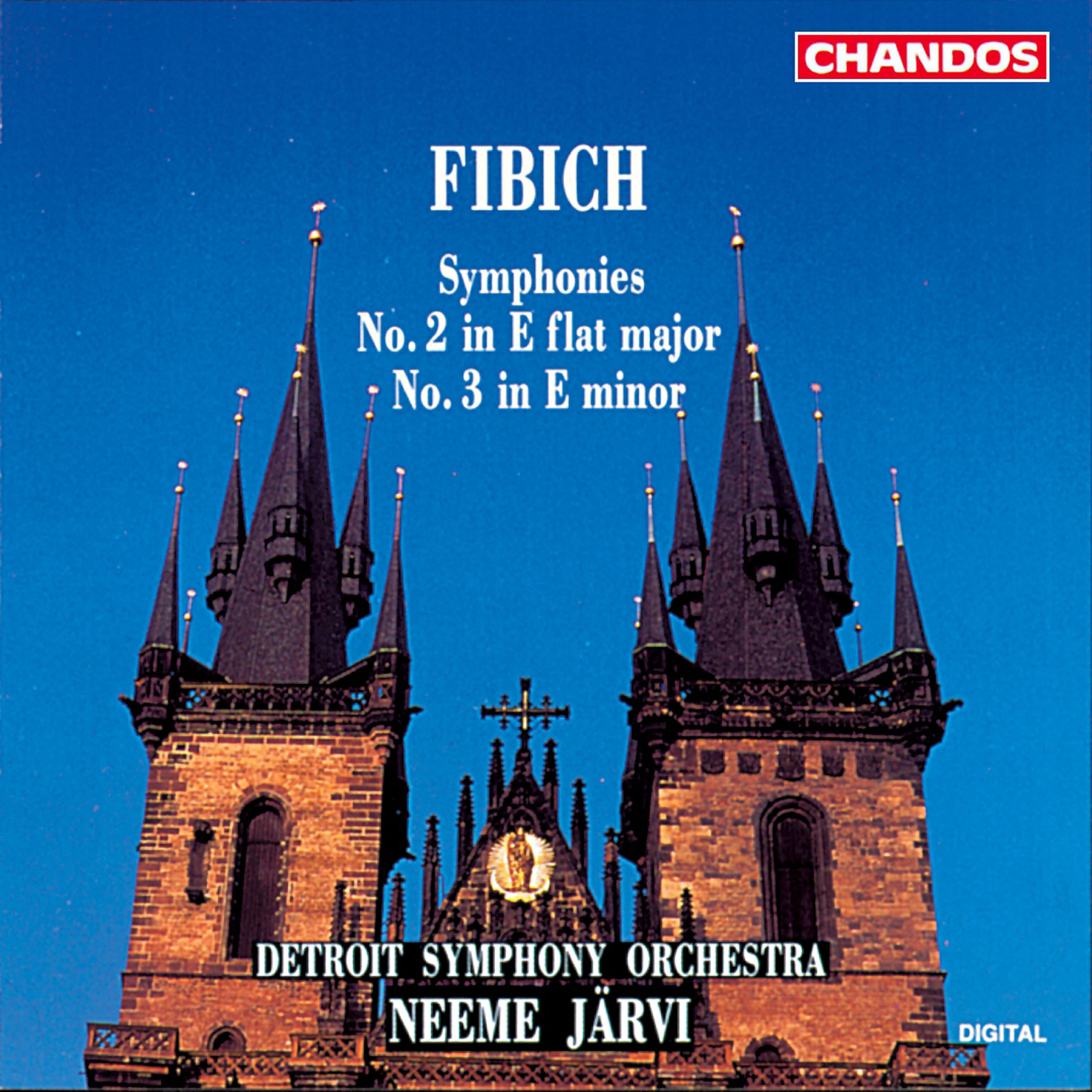Don't Like Your Classical Music Quiet and Slow?
Then Zdeněk Fibich is your guy!
His music tends towards the extroverted, that is for sure. Some listeners complain about being weary after listening to Fibich's symphonies, for the composer never lets up on his upbeat tempos and good moods.
For me, I enjoy their energy and high spirits, which is heightened by having Neeme Järvi on board. The Estonian conductor is not well known for subtlety, and that is certainly the case here.
Of course, I don't think this music needs so much thought and introspection, and certainly Detroit brings on the lyricism when called for, with some lovely wind features. Otherwise, Fibich prefers fast tempos and brass-laden, loud dynamics.
Symphony no. 1 in F Major is the most straightforward of his three in the genre. Each of the four movements make their mark, and his First certainly finds Fibich in a perky, good mood, one aspect I especially enjoy about this music.
There is something of the Czech hillsides and forests in Fibich's opening movement too, as well as a calm, folk-like rusticity in the slower third movement. The work sounds like a coming together of the German symphony model with the composer's Eastern-European heritage. If it is perhaps not as refined as Dvořák, I find it compelling all the same.
So too, his succeeding symphony opens upon darkly-wooded hunting horns, which builds and builds towards its climax, with a keen sense of timing and orchestral color. In all, I find Fibich's Symphony no. 2 in E-flat Major better balanced, finding the symphonic experience less exhausting than his First.
As a matter of fact, perhaps his Second Symphony is in reaction to his First, for the middle movements are less riotous, even if they still prefer brassy drama over anything near contemplation. Fibich is at his most playful in the finale, with little rhythmic twists and turns, yet at times he unexpectedly holds back. Never fear, the composer can't help but burst forth for too long!
If anything, I here an influence of Brahms in Symphony no. 3 in E minor. Fibich gives more time for bucolic reveries, particularly in the 2nd Movement, set among a love of dashing heroism. I also hear less of a Nationalistic quality, so perhaps this is what musical maturity brought to the composer's music over time.
It is interesting to hear Fibich work within a minor key, as his two previous symphonies were major keyed. Certainly, there is a greater feeling of suspense, but when the horns erupt early in the opening movement, we know the composer's wont of the triumphant is still always lurking around the corner.
There are a few other notable recordings available of the symphonies. An older one from Supraphon is well respected, but some of it is in mono. Also, a more recent set on Naxos contains the most extras, with no less than five volumes. There, the Czech National Symphony Orchestra is much lighter comparatively, so some might prefer that approach over Järvi's heavier hand.
But I am happy with this Chandos set still. I have the complete 2CD set at the top, but they can still be found separately if the extra Smetana paired with Symphony no. 1 is wanted. Otherwise, that music was taken off the symphonies set.
Listen on YouTube
Works
Symphony no. 1 (34.13)
Symphony no. 2 (33.28)
Symphony no. 3 (37.31)
Performers
Detroit Symphony Orchestra
Neeme Järvi, conductor
Label: Chandos
Year: 1993-4 / 1998
Total Timing: 1.45.23
These are a fun set of symphonies, and Fibich's music is energetic and upbeat, with a hint of his Czech homeland.
I like Järvi and Detroit here, but there are other recorded options available for those averse to his full-hilt style with a US orchestra.
Find more Fibich recordings HERE!





Comments
Post a Comment